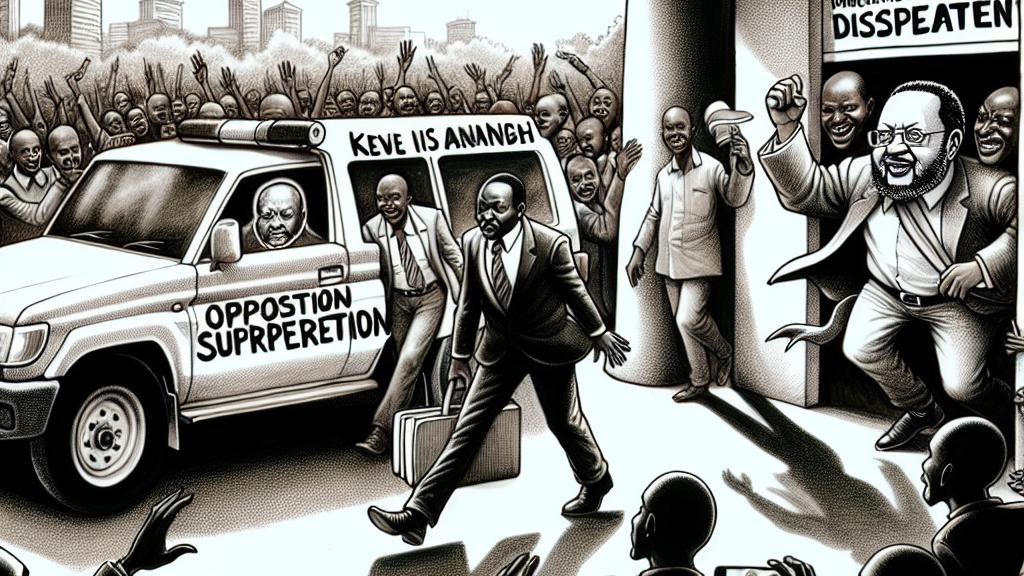The Disappearance and Detention of Kizza Besigye: A Political Turmoil
Overview
- Kizza Besigye, a prominent opposition leader in Uganda, was allegedly kidnapped in Kenya during a book launch.
- His rivalry with President Yoweri Museveni has dominated Ugandan politics for decades, reflecting systemic issues.
- This incident raises pressing concerns about human rights abuses and the tactics used to suppress dissent.

The Mysterious Detention
Picture this: Kizza Besigye, a celebrated figure in opposition politics, arrives in Nairobi, Kenya, filled with anticipation for the launch of a book by fellow politician Martha Karua. Yet, just hours later, he vanished without a trace, allegedly abducted by men posing as law enforcement officials. This alarming incident didn't just stir immediate outrage among his supporters; it raised critical questions about the police's integrity in both Kenya and Uganda. Such an audacious act not only undermines regional stability but also reveals the distasteful lengths to which governments may go to eliminate opposition—a strategy that risks the glue of diplomatic ties between these countries, where mutual interests are often prioritized over justice.
The Abduction and Aftermath
After being seized, Besigye was transported across the border back to Uganda, marking a dramatic shift from a political event to a high-stakes game of power. Within days, he reappeared in a military court, sparking intense backlash and condemnation from human rights advocates worldwide. Winnie Byanyima, his wife and a prominent figure herself, passionately called for his immediate release, asserting that a civilian like her husband should not face a military tribunal. Her words resonate deeply in a country where political repression is alarmingly common. Just look at Bobi Wine, another key opposition leader; he has faced similar harassment and intimidation, underscoring a disquieting trend of silencing dissent and targeting those who dare to challenge the established power.
A Wider Context of Repression
Besigye's case encapsulates a grave reality within Uganda: the spiral of political oppression that adversaries confront daily. Over the years, the Ugandan government has resorted to frightening tactics, including violent crackdowns on protests and illegal detentions of political rivals. Consider the violent confrontations during the previous elections, where live ammunition was used against demonstrators. The public response to these incidents is mixed; many live in fear, while others continue to hold onto hope for change. As international scrutiny increases, it becomes crucial to question: How can Ugandans reclaim their voices in an environment fraught with intimidation? Strengthened global alliances and unwavering support from international bodies could be pivotal in advocating for human rights, pushing back against an oppressive regime, and illuminating the urgency for reform in a nation yearning for democratic justice.

Loading...